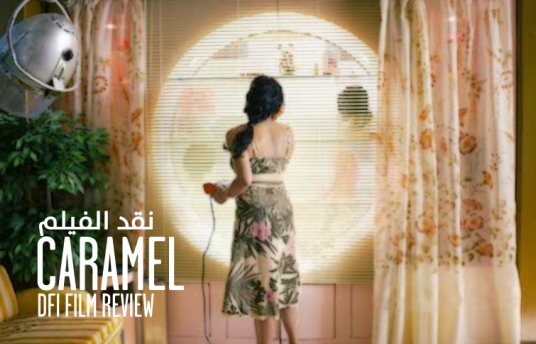DFI Film Review: Caramel (2007)
Mar 28, 2011

Written by Amir Ghonim, New Media and Content, DFI
Film: Caramel
Director: Nadine Labaki
Country: Lebanon
Genre: Drama, Romantic.
Cast: Nadine Labaki, Yasmine Al Masri, Adel Karam, Joanna Moukarzel, Sihame Haddad, Gisèle Aouad, Aziza Semaan.
In an old Lebanese neighborhood, where the scent of love, sacrifice, self-denial, and caramel comes out of Si Belle coiffeur’s windows, Nadine Labaki, a Lebanese filmmaker with a remarkably bold and new generation of cinematic style in the Middle East, made another piece of beautiful art. It is a film about six women with six different stories who are bound by a need to find themselves.
video#2
As a filmmaker, Labaki shows her creativity by establishing each element in the film, starting with a script impregnated with the fragrance of life and reality. The script is quite different from other romantic scripts often found in the region – most others have a happy yet predictable ending – as this film puts its little caramel stories into a realistic context. The script makes you feel sorry for the characters because of the ironic dilemmas they continually find themselves in, but also happy and content for them too, because of the little treats they get from life along the way. It is very balanced: not too happy, and not too sad, just like life. Furthermore, the way Labaki portrays each character in the film, slowly revealing their characteristics, is very natural and honest: it is as if fate has had a strong presence in her script, drawing the features of each character into the open.
It is worth mentioning that the actors who play three of the main characters, Jamale, Rose, and Lily (Gisèle Aouad, Sihame Haddad and Aziza Semaan respectively), are all first time actors. In my opinion, they give the best performances in the film. These three characters have complicated roles, but the most complex character is Jamale, a divorced woman in her forties who has two kids, and who portrays a powerful example of a divorced women in an open Arabian community such as this one. For me, the scene that reveals the pain of Jamale is her last one, in which she is at a wedding and leaves the crowd to head to the restroom. She finds a few young ladies waiting their turn, and gets their attention by asking if she can enter first. They concede, and when she enters she takes out a piece of tissue and dyes it with a red dye in an attempt to fake menstruation. The disgusted look on her face happens not because of what she is doing, but because of the reality she finds herself stuck in, and her absolute rejection of it. She longs to again be young and beautiful and in the prime of her life. She leaves the restroom with her head held high, but not before giving one last parting glare, full of envy, at a young lady hanging around in the wedding.
Rose is a tailor in her early fifties who is deprived of love and marriage because of Lily, her older sister, who has mental problems and is completely dependent on her. Destiny gives Rose the chance to meet Charles, the man who, she believes, will look after her and make up for the lack of security and love she has so far been without all her life. Sadly, she discovers that her sister has fallen in love with the same man, and a conflict begins where she finds herself with a terrible dilemma. Should she choose the man of her dreams and lose her sister, or should she stay with her sister, who has no one to look after her? The complicated relationship that takes place between Rose and Lily is very interesting. Lily does a good job convincing us that she has the right to love Charles. She makes us feel sympathy towards her. Lily is jealous of Rose, and believes that Charles loves her back and that she can survive without Rose. Rose, meanwhile, feels sorry for her sister, who she believes is living a lie, and also feels sorry for herself for not being able to be with Charles. This huge sacrifice from Rose, just so she can spare her sisters feelings and not hurt her, is very touching.
The remaining characters in the film, Layale, Nesrine, Rima and Youssef, played by Nadine Labaki, Yasmine Al Masri, Joanna Moukarzel and Adel Karam respectively, all did a brilliant job in completing the poetic image of the film and joining it together smoothly.
The film hugs you with its warm feelings, and the images of the old warm buildings are like the hearts of the women who live in them. ‘Caramel’ shows us how strong Middle Eastern women are. They can love, fight, revolt and bare hardship, yet sometimes life throws more on their hearts than they want to carry.
It is worth mentioning that “Caramel” is the most distributed Arab film to date, and that Nadine is making a new film in association with DFI called “Where do we go now”.
video#1